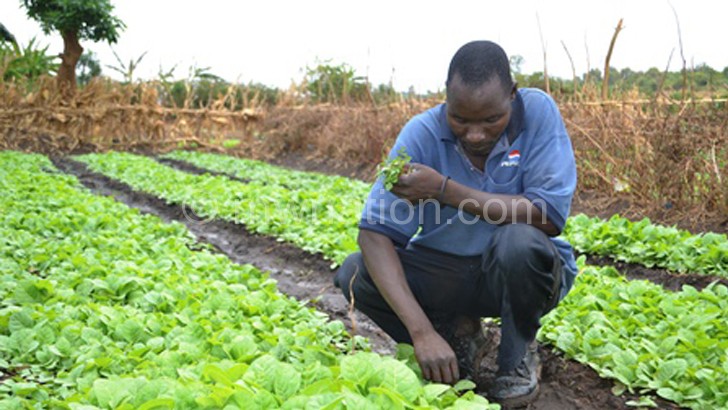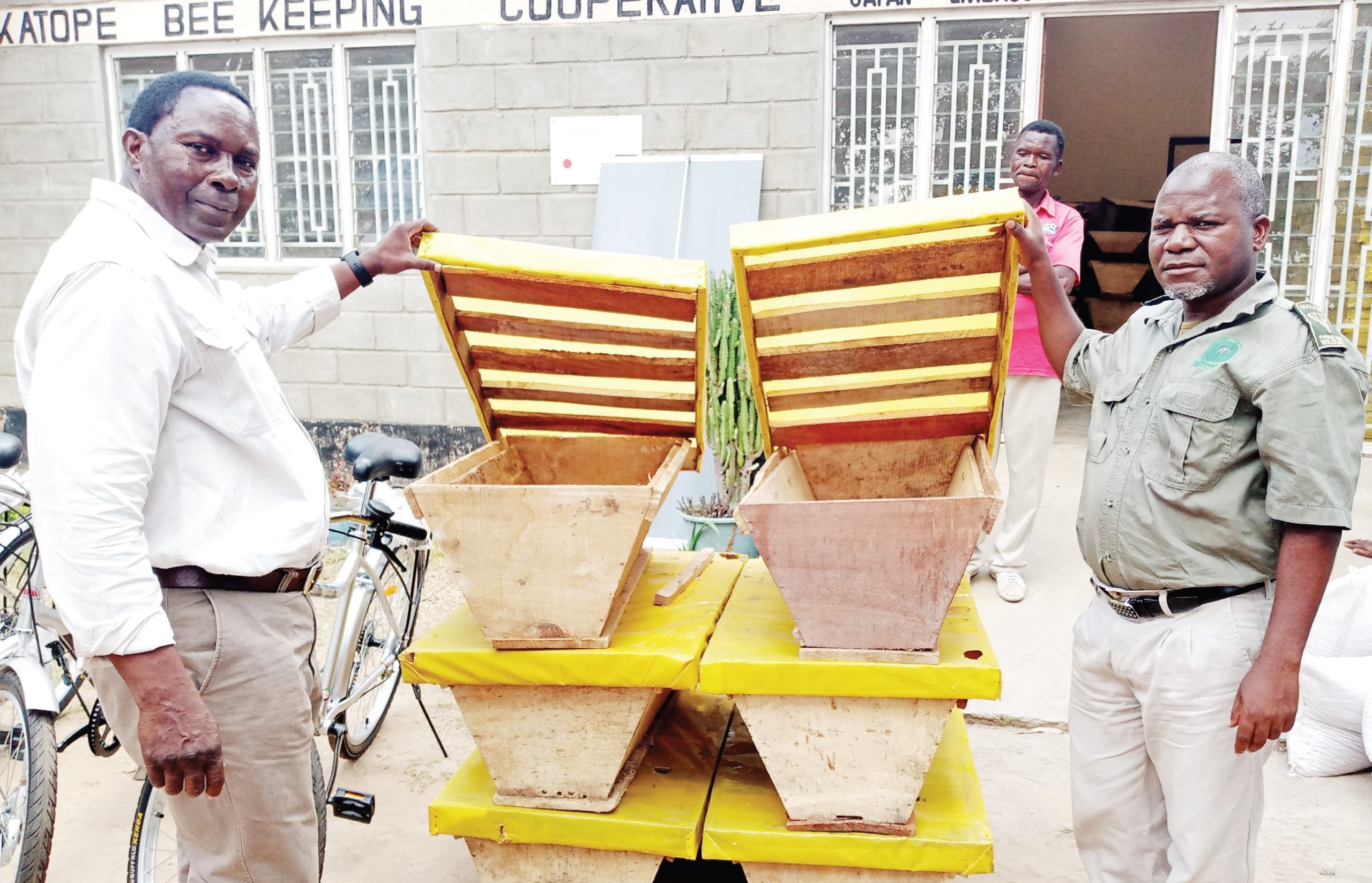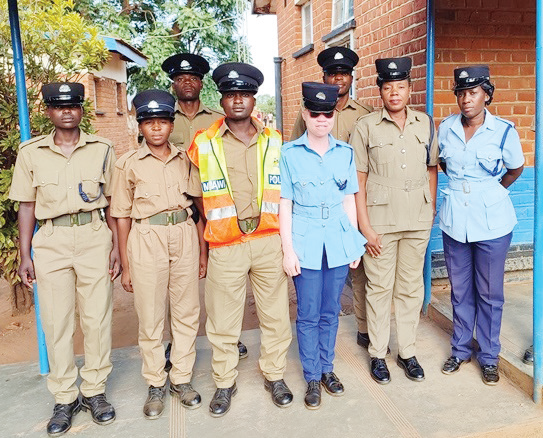IPS revolutionarising Malawi’s tobacco farming
Change, world over, hardly finds its roots in a society the easy way. It is hardly accepted on account that it brings into play new concepts that some quarters within the society question.
As one would expect it, the Integrated Production System (IPS) in tobacco farming faced similar resistance within the tobacco industry when it was first mentioned in Malawi in 2000 and later sanctioned in 2012.

IPS is an arrangement that allows farmers and growers to partner for the purpose of achieving the desired quality tobacco.
Basically, the grower and the buyer sign a contract that enables the buyer to support the grower with all the necessary inputs, extension services and technical advice in pursuit of best yield from the land and a higher quality crop.
Three to four years down the line since its formal sanctioning, IPS has proved to be the way to go if Malawi is to produce the desired quality of tobacco.
Recent interviews with both tobacco bodies and the government on IPS sustainability reveal that the system is a commendable arrangement that would help achieve quality of the leaf while checking challenges that the industry faces.
Tobacco Association of Malawi (Tama) chief executive officer, Graham Kunimba, describes IPS as an arrangement that is winning the hearts of many farmers in the country.
Kunimba foresees that, basing on the study Tama conducted recently, the system will soon be accepted by every tobacco farmer in the country.
“As a representative body of tobacco farmers in the country, we have done a scientific research where we went round and spoke with farmers—all of them—and the outcome of that research showed that 70 percent of the farmers are happy with IPS while 30 percent still prefer the auction system,” explains Kunimba.
He describes IPS as a gradual process and expresses hope that the small number of farmers remaining, when reached out to, will appreciate and see the benefits of the system and start speaking well about it.
Likewise, the Tobacco Control Commission (TCC) finds IPS a sure way of ensuring quality production of tobacco and also a sure way of controlling child labour, among other challenges the industry faces.
TCC deputy CEO, David Luka, says the Commission is still working on the system, but emphasises IPS is a good system for tobacco farmers to adopt.
“IPS is here to stay but we feel there are some grey areas we have to look into,” said Luka, adding, “It’s a good system but it has to be perfected to suit the Malawian farmer.
“Buyers would want to trace whether their tobacco is grown properly or not, or whether proper chemicals are being applied, and no child labour is involved and the only way to do it is to contract farmers and monitor them—that’s where this IPS comes handy,” he says.
Luka adds that the grey areas of IPS that require thorough scrutiny are issues to do with legality of the contractual agreements that the buyer and the farmer sign and as to whether the farmer is really aware of or conversant with the contents of the contract.
He further observes that scrutinising IPS may not be a day’s job and that it needs consultative meetings with stakeholders and all concerned bodies so that they come up with something generally acceptable to both the grower and the buyer.
Government, on the other hand, agrees that IPS is a solution to reoffer challenges that farmers face at the tobacco market as through the system quality of the tobacco is checked right from the nursery to the final product.
Minister of Agriculture, Irrigation and Water Development Allan Chiyembekeza explains government’s stand concerning IPS: “Government’s stand has always been that IPS is there and auction system is also there and I have said time and again that government is not forcing anybody to join IPS.”
He continues: “There is a reason why we are advocating for IPS: traceability is there and the use of children in tobacco farms is another crucial issue that IPS keeps in check.”
The minister describes IPS as a complete package considering that by working closely with the grower, the buyer ensures that all the recommended practices in tobacco production are followed.
“To me, IPS is a good system but government is not forcing it on the farmers: they are free either to be on IPS or on auction,” says Chiyembekeza.
A spot-check conducted recently by this reporter on a number of farmers in Lilongwe reveals that despite the erratic rain pattern during the 2015-2016 growing season, growers under contract farming have produced a high quality leaf as compared to their counterparts who are not.
Smiling ear to ear, farmers in partnership with one of the tobacco buyers, JTI, could not help revealing the secret behind their success in producing high quality tobacco.
“JTI leaf technicians have been working closely with us, monitoring the leaf at every stage and advising us what to do or what not to do to achieve the leaf of the desired quality,” explains Luka Aaron, a farmer from Kazengera Village, Traditional Authority Chitukula, in Dowa.
Among other things, the technicians also helped the farmers on how best to conserve water within the ridges given the dry spell that farmers experienced during the 2015-2016 growing season.
“As the tobacco stands in this field, it is as good as sold because the leaf technician has just assured me that I have produced the leaf of desired quality and I’ll be going to the market very certain of getting my due returns,” explains Aaron.
IPS is a government approved policy currently regulated by the Tobacco (Integrated Production System) Regulations of 2014.
The IPS Regulations and policy guidelines are yet to be enacted into a law that covers the interests of both the grower and the buyer.n





